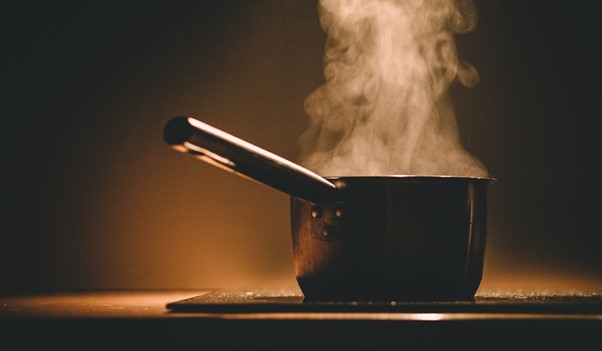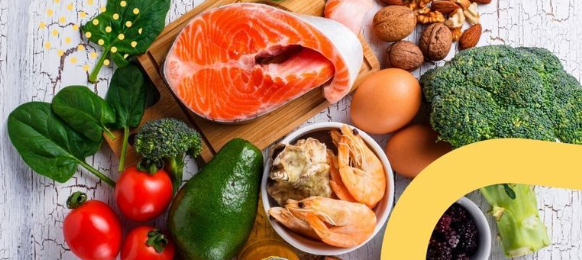Role of Nutrition in Drug Addiction Recovery
Source: Pexels
Introduction
Substance abuse can ravage the body, depleting it of essential vitamins and minerals. This malnutrition hampers the recovery process. However, proper nutrition can help repair this damage and support individuals on their road to recovery. This article will explore the impact of substance abuse on nutritional health. We will also discuss how optimal nutrition can accelerate the recovery journey.
The Direct Impact of Substance Abuse on Nutritional Health
Substance abuse can lead to severe malnutrition. According to SAMHSA, it leads to malnutrition in nearly 50% of those with substance use disorders. Additionally, drugs and alcohol alter nutrient absorption, metabolism, and excretion.
Here are some specific ways drugs alter nutritional health:
- Less Appetite
Drugs like cocaine and opioids, such as heroin, can make you lose interest in eating. This leads to not getting enough essential nutrients because you’re just not hungry.
- Nutrient Malabsorption
These substances can harm your gut and the healthy bacteria living there. When your gut is damaged, it can’t absorb nutrients properly. So, even if you eat, your body can’t make good use of the vitamins and minerals it needs, like vitamins A, D, E, B12, folic acid, iron, calcium, and zinc.
- Increased Nutrient Loss
Some substances like alcohol and heroin make your body flush out nutrients through urine. This especially affects B-complex vitamins and minerals, which are essential for your health.
- Impaired Liver Function
Substance abuse can damage your liver, which plays a big role in processing and storing nutrients. When your liver is not working well, it can’t do this job effectively.
- Heightened Nutritional Needs
During recovery, your body needs extra nutrients to detoxify and repair damaged tissues. If you don’t provide these extra nutrients through your diet, your nutritional deficiencies can become even worse.
- Gastrointestinal Issues
Vomiting and diarrhea are common during substance abuse. This can cause your body to lose fluids, electrolytes, and nutrients rapidly. This can lead to further imbalances in your nutritional health.
The Role of Nutritional Therapy in Recovery
Nutritional interventions are now recognized as integral to addiction recovery programs. Here are some ways nutrition helps to recover from addictions
- Fixing nutrient deficiencies: It is advisable to consume nutrient-dense whole foods or supplements. This can help reverse deficiencies caused by substance abuse.
- Detoxification: Nutrients like zinc, potassium, calcium, and vitamins B, C, and E help flush toxins and drug metabolites out of the body.
- Reducing cravings: Balancing blood sugar levels with nutrition reduces drug and alcohol cravings.
- Repairing organ damage: Key nutrients help regenerate and repair damaged tissue and organs.
- Restoring mental health: Adequate nutrition is linked to improved mental health, and cognition. These are all crucial for recovery.
Dietary Recommendations for Individuals in Recovery
The importance of nutrition in rehabilitation cannot be overemphasized. the role of nutrition in recovery from alcohol and drug addiction is also great
To support the addiction recovery process, it’s important to pay attention to your diet. Here are some specific dietary tips to achieve proper nutrition in drug addiction recovery:
- Adequate protein: Choosing high-quality lean protein sources is a good diet for addiction recovery. It aids in cell repair and builds muscle loss during active addiction.
- Complex carbohydrates: Carbohydrates are an important nutrition for addiction recovery. Choose slow-burning carbs like whole grains to stabilize blood sugar and curb cravings; avoid refined carbs.
- Healthy fats: Omega-3s found in fish, nuts, and seeds support brain health. Limit saturated fats.
- Fruits and vegetables: They include a lot of antioxidants, vitamins, and minerals. This enhances detoxification and healing. Aim for variety and color.
- Hydration: Drinking adequate fluids is vital for detoxification. Herbal teas can also provide added nutrition.
- Eat regularly: Don’t skip meals. Consume small, frequent meals for steady energy and blood sugar balance.
By following these dietary tips, individuals create a personalized nutrition plan for recovery.
The Gut-Brain Connection: How Gut Health Influences Recovery
The gut has trillions of bacteria living in it. These bacteria are a key mediator between the gut and the brain. Additionally, growing research shows that gut and mental health are connected. Substance abuse severely disrupts gut bacteria. This often leads to gut dysbiosis. Here are some effects of gut dysbiosis include
- Impaired mood and cognition: Bad gut bacteria mean less mood-regulating neurotransmitters. This hurts emotional balance and focus.
- More inflammation: Some bacteria create brain-inflaming issues. These cause worse anxiety, depression, and focus problems.
- Cravings in overdrive: Unhealthy gut bugs make cravings harder to resist.
- Nutrient struggles: A messed-up gut lining means less nutrient absorption. This slows physical and mental recovery.
- Compromised immunity: About 70% of immune cells are located in the gut. An unhealthy microbiome disrupts the immune cells. This increases susceptibility to infections that strain recovery.
Holistic Approaches to Recovery: Combining Nutrition with Other Therapies
There is no doubt that nutrition in drug addiction recovery is fundamental. But to fully recover from addiction requires an integrated approach. Some therapies that complement nutritional interventions include:
- Counseling and Therapy
Counseling and therapy help address the psychological and emotional aspects of their journey.
Comprehensive addiction treatment provides counseling and therapy sessions. These sessions help identify triggers for substance abuse. Comprehensive addiction treatment also provides strategies to change behavioral patterns. They also offer a safe space to process emotions and develop healthier ways of coping with life’s challenges. A comprehensive addiction treatment in Cincinnati program helps manage stress and cravings
- Exercise
Regular physical activity helps balance neurotransmitters in the brain. This can improve mood and reduce cravings. It also reduces stress, promotes better sleep, and enhances body image, all of which contribute to a person’s overall well-being. Both aerobic exercise and strength training have specific benefits in aiding recovery.
- Stress Management
Practices like meditation, yoga, and mindfulness are effective tools for reducing stress levels. High stress can be a trigger for relapse. So, learning stress-reduction techniques can prevent falling back into addictive behaviors. Additionally, these practices teach healthy coping skills, which are essential for maintaining recovery.
- Support Groups
Connecting with others who are also on the path to recovery fosters a sense of community and accountability. Support groups provide an environment in which people may discuss their experiences. These connections help build a support system that is crucial for maintaining long-term sobriety.
Challenges and Considerations in Implementing Nutritional Therapy
Certain barriers may impede the implementation of nutrition therapy. These barriers include:
- Limited access to fresh, healthy foods
- High costs of certain dietary recommendations
- Physical complications that limit food intake
- Lack of nutrition knowledge
- ·Low motivation levels
Here are some approaches to solving these challenges:
- Prioritizing basic healthy nutrition like fruits and vegetables
- Seeking nutrition education and counseling
- Joining community gardening or cooking initiatives
- Optimizing social support for motivation
- Exploring food assistance programs if needed
The key to success in overcoming these challenges is to take a non-judgmental approach. It’s important to remember that progress, no matter how small, is the ultimate goal rather than striving for perfection. This approach makes the journey towards better nutritional health more achievable and sustainable.
Conclusion
In conclusion, recovery from addiction involves rebuilding physical, mental, and emotional health. An often overlooked but fundamentally important component is proper nutrition. Consuming nutrient-rich, balanced meals provides the raw materials needed to repair the body and mind. While nutrition alone cannot “cure” addiction, it serves as a foundation and catalyst for the recovery process. Counseling and good nutrition help individuals reclaim their health and their lives.
If you or a loved one are overcoming addiction, focus on taking it one day at a time. Reach out for professional help to craft a customized nutrition and wellness plan to meet your recovery goals. Invest in your recovery – you deserve to be healthy and fulfilled.
FAQs
Q: How soon after beginning recovery should one focus on nutrition?
Nutrition should be a priority right from the onset of recovery. Proper nutrition can aid detoxification and help manage withdrawal symptoms. Consuming regular, nutrient-dense meals is key.
Q: Are there specific foods or supplements that can curb drug cravings?
While no food can eliminate cravings entirely, nutrients like amino acids help alleviate some cravings. Before attempting, consult with a healthcare practitioner.
Q: Why is staying hydrated important in addiction recovery?
Drinking enough water supports all bodily functions and detoxification. Even mild dehydration can cause fatigue, headaches, and mental fog – which may increase the chances of relapse. Strive for 8-10 glasses of fluids daily.






